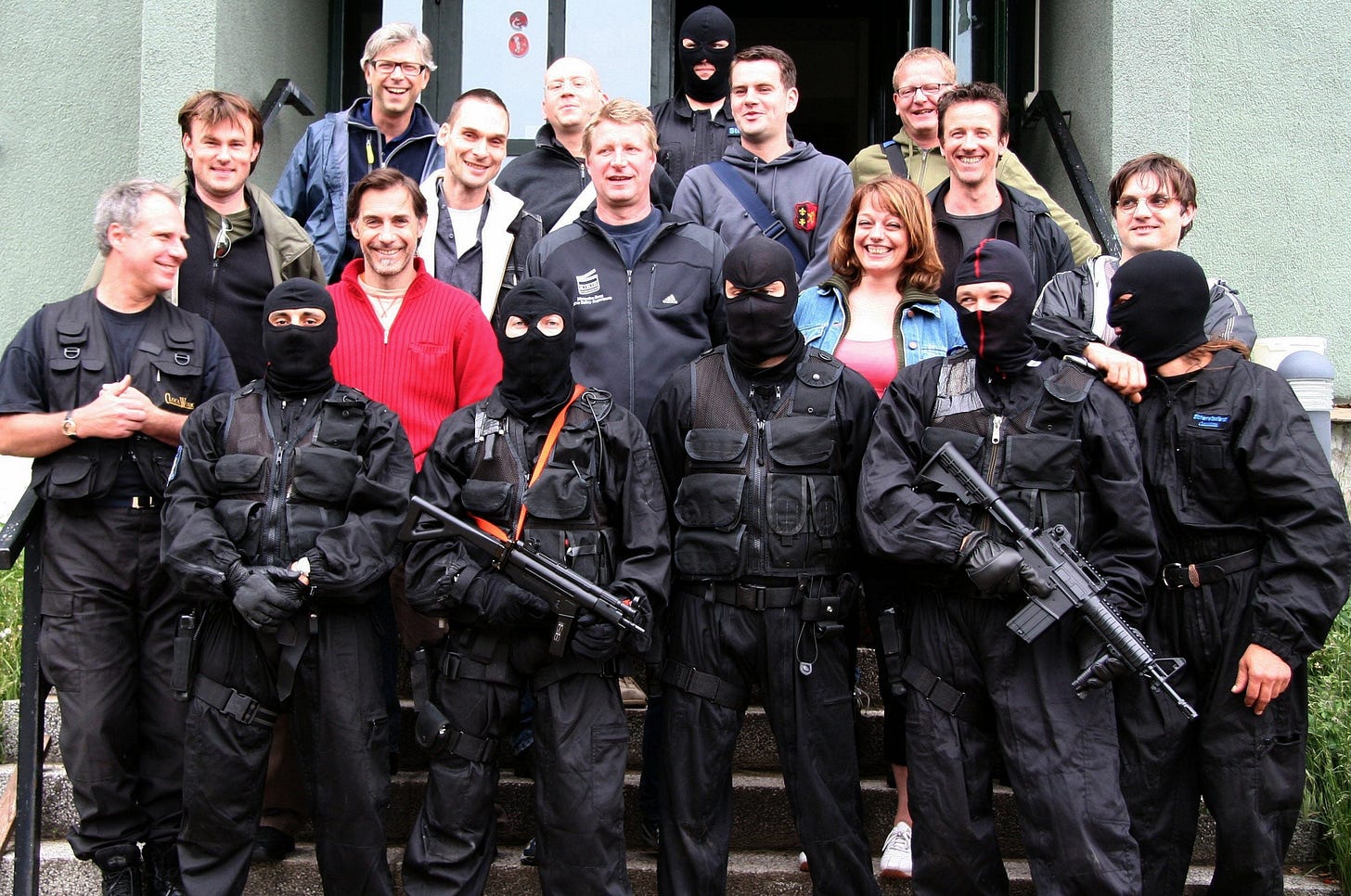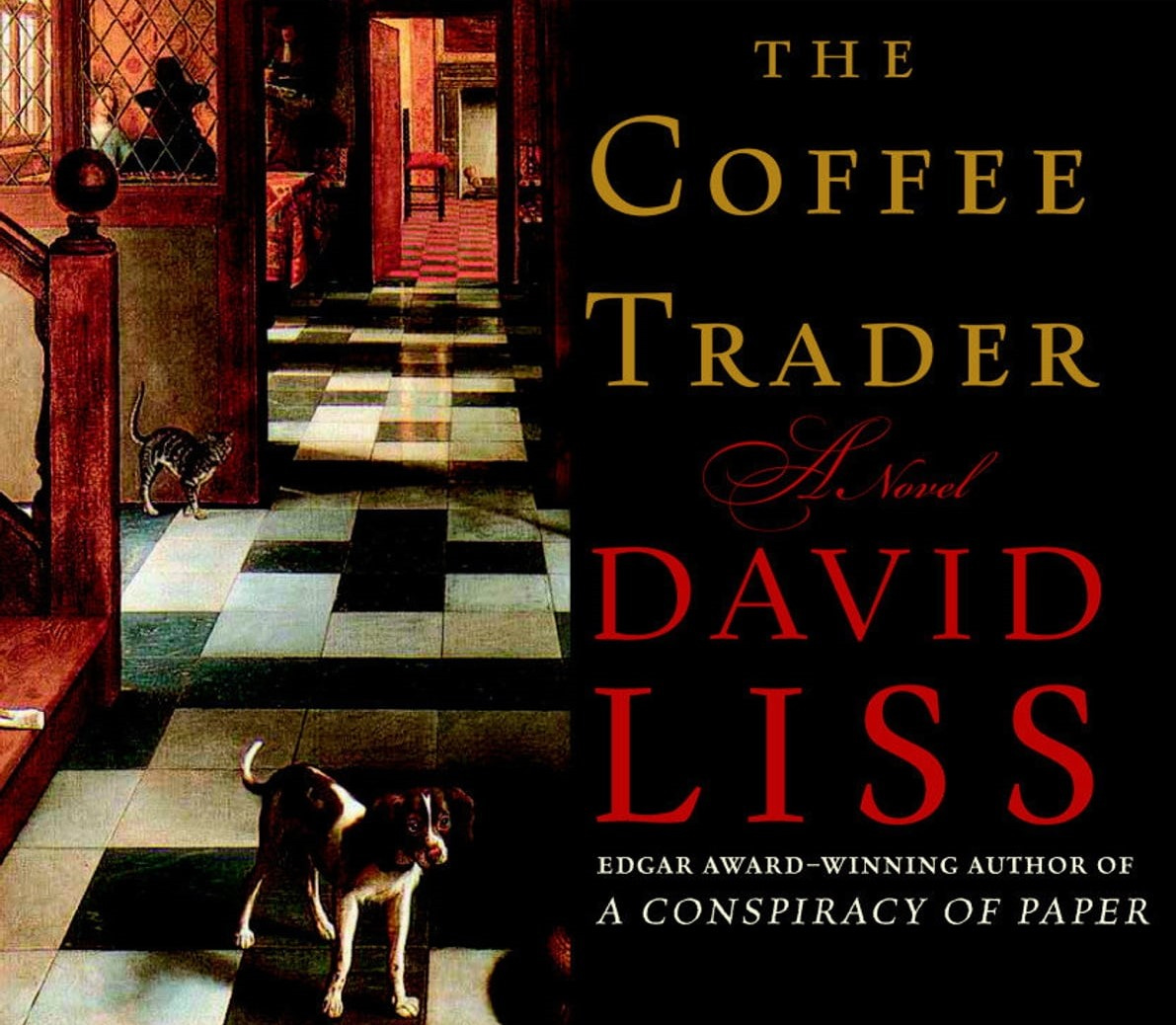“You want me to do what!?”
One fine day in April 2005, my literary agent got in touch and asked “Have you ever done an adaptation?”
By 2005 I had written a number of screenplays. Some had gone on to become films, others remained - and remain - in that good old development hell. My focus, until that time, had been on thrillers.
My agent had heard about a producer interested in turning David Liss’ historical novel “The Coffee Trader” into a thrilling, sumptuous adventure film. As I had done neither adaptations nor period scripts, we both knew that there was little chance I’d even be considered for such a gig, especially since they were looking for an internationally renowned screenwriter with the right track record. Still my agent got in touch - and what a great agent he was and still is! Someone who’s always on your side, always believes in you, always pushes you, always pitches you. Wonder who that truly stellar human being might be? Here ya go.
I was weary about doing an adaptation. In the past, I had always somewhat looked down on doing such work. Why would I write a screenplay based on someone else’s creative endeavors? Why do that if I could continue to write my original stories? Well, there was that on one side, but then there was the challenge on the other. Since I really didn’t know the first thing about adaptations, I was more than a little intrigued. So I replied to Julian: “If the producer’s basically open to the idea of me, then I’d like to read the book first. If the book spends more time on history, trading and romance, and less time on the suspense and thriller aspects, it probably won’t be up my alley. But if it really is a “historical financial thriller,” then I might just be the right guy for this project. And hey, I do LOVE coffee!”
It didn’t take long for the producer to express his basic interest. He saw my resume, read some of my scripts – and before long the novel was in my mailbox. As I was reading it, I’d update my agent – here’s something I shared with him at the time: “It isn’t exactly a page-turner. At least not to me. So far, two hundred pages into the story, it’s a grand lot of exposition about 17th century Amsterdam, the trading world there and the Jewish-Portuguese community. Then there’s mild relationship issues, nothing more so far. A great intrigue is hinted at, I’m sure something will (it better be) happen soon. The lead is, so far, not particularly interesting. No deep passion he’s fighting for, no great obstacles in his way. He’s a wheeling and dealing sort of character, and not very exciting at that. Things just happen to him, he doesn’t make them happen... so far. I certainly do hope that the second half will blow me away!”
What can I say, it did! The Coffee Trader adaptation was my first such gig – I would go on to pen three more adaptations (two of which became successful films) afterwards - more about that here. Work on The Coffee Trader provided me with excellent opportunities to learn about this aspect of the craft, to essentially spot the film in between the pages of the novel. It will come as no surprise to read that what’s great for the novel can be entirely useless (even harmful) for the film. With The Coffee Trader, it really did turn out that I could simply skip the first two hundred pages.

At the time I was having great fun working for a German action series about Germany’s elite GSG9 anti-terror unit. I was reading The Coffee Trader at night, while, during the day, our group of writers was given first-hand training by the experts – we were shooting pump-action shotguns and revolvers, we were taken through hostage scenarios with grenades and abseiling and formation attacks. I have to admit, I was having more fun with the German series. Julian reminded me that The Coffee Trader could by my ticket from doing regional gigs to doing A-lister Hollywood work. Point well taken and I jumped back into 17th century Amsterdam.
My meeting with the producer was set for the second half of June. By then I had finished the novel, thought it overall excellent and found it to contain all the potential for a great film. I knew that I had to be cautious with that first meeting. I wanted to make the right impression, of course – and that meant doing everything I could to keep it light. I had questions and I saw flaws with the novel – but I wasn’t going to raise them at that stage. Instead, I’d ask the producer what made him fall in love with the novel and take it from there. Such meetings tend to be casual on the outside, tremendously taxing on the inside (at least for an introverted writer like myself).
More on that as the story continues with: “In the room where it happens”






